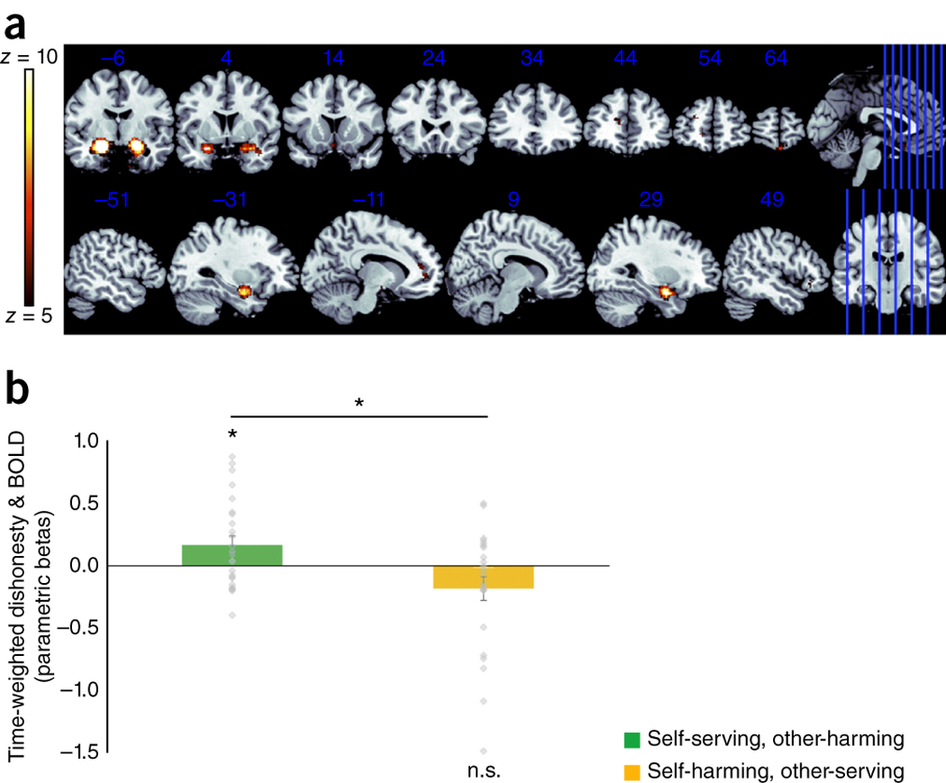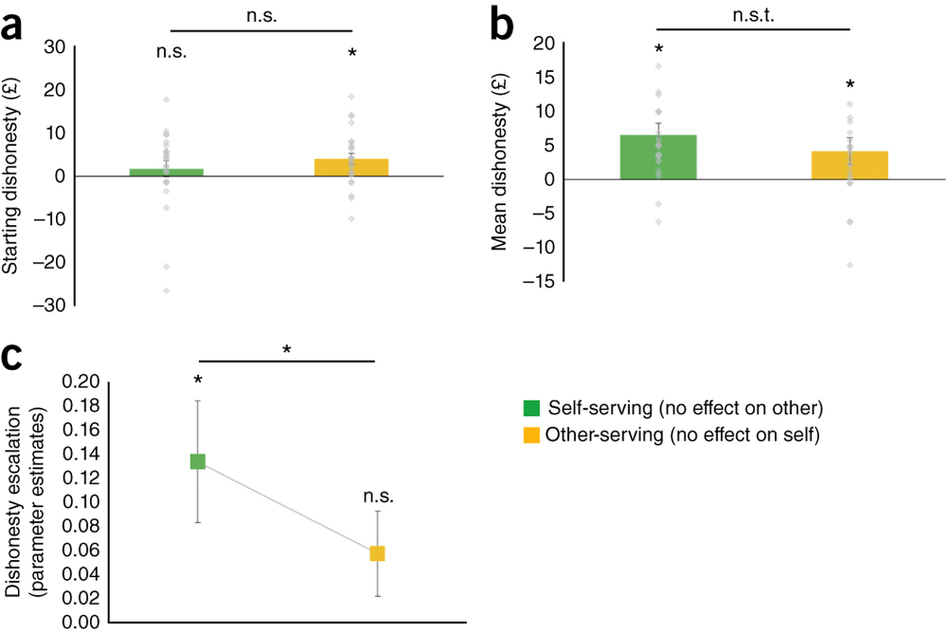Scientists have figured out how the human brain adapts to lies.

A team of researchers from University College London has established empirically that the smallest lies can lead to uncontrollable consequences. When you embellish a little truth for your own benefit, sooner or later you have to invent a new lie in order to support the previous one. Over time, grows a whole web, which primarily harms its creator. Scientists have presented the first empirical evidence of how one mercenary lie is superimposed on another and showed how and why this happens in our heads.
Lies are an integral part of the social world, affecting many areas: from personal relationships to politics and economics. In conversations with researchers, many fraudsters described how insignificant lies led them to crime over time. However, so far no one has conducted an experiment that could prove such a hypothesis. Scientists have set themselves the task to empirically demonstrate a gradual increase in the frequency of lies and investigate the mechanism that controls this process. Their main goal was to find out whether dishonesty escalates over time, or the reaction to a lie in the tonsils is reduced. The results of the study were published on October 24 in the journal Nature Neuriscience .
')
The experiment involved men and women aged 18 to 65 years. Some of them performed tasks in the MRI cell, while others were tested in test boxes. The participant in the experiment worked in a pair with the "actor", who was represented as one of the same subjects. The tested person was assigned the role of adviser, and the “actor” was assigned the role of appraiser. The experiment developed in several scenarios. At the very beginning of the experiment, the appraiser and the adviser were placed in different rooms. Then, for 4 seconds, the adviser was shown a picture with a can of coins. The adviser had to guess what amount was in the bank and send his answer through the computer to the appraiser. The evaluator was shown the same picture in 1 second, and then he had to check with the advisor’s option, make a decision and announce it. For the most accurate answer, bonuses are received by both - the appraiser and the advisor. In this case, the subject did not need to be cunning, but in the second part of the experiment the events developed much more interesting.
In the following stages, the adviser was confidentially informed that the amount in each bank would vary from 15 to 35 British pounds, and that his partner does not know about it. Overestimating or underestimating the number of coins in the bank, the adviser wins the amount by which he will be able to deceive the appraiser. And the longer the experiment lasted, the more the participants distorted information about the amount of money in the bank. If for the first time advisers distorted data on 1-2 British pounds sterling, by the end this difference was already 8.
When the subject lied for the first time, the amygdala in his brain, responsible for emotions, was particularly active. It is this part of the brain that makes you feel uncomfortable when we cheat. However, with each subsequent lie, the activity of the tonsils decreases, the person no longer feels the “stop signal” and continues to tell lies. So the researchers found out that the more the activity of the tonsils decreases, the more one lie acquires new details in proportion to the time spent on deception. Simply put, the more you lie - the more you lie. This process can be called emotional adaptation.

Decreased sensitivity to lying over time
The idea is that when a person first encounters emotional stimuli, say, a photograph from the scene of the accident, he takes it seriously enough. The neurons in the tonsils, literally speaking, flare up brightly. But if this person becomes, for example, a forensic expert who does every day what works at the scene of the accident or considers photographs from the scene, the brain adapts and the neurons calm down. He no longer responds so emotionally. This is true for many other sensory experiences.
“This is a very interesting look at how the brain reacts to repeated and increasing deception. It is necessary to carry out another series of tests in order to accurately establish the connection between lies and the blunting of emotional reaction. Perhaps the effect of a gradual increase can be observed in other types of behavior, ”notes Dr. Raliza Stoyanova, senior project developer in the cognitive neuroscience and mental health group at the Welcome Trust.
Scientists suggest that the weakening of the reaction of the tonsils in response to a lie may reflect a decrease in the emotional response to making "fraudulent" decisions or their incorrect assessment, the visibility of the very fact of lying to a person. In addition, test results indicate that a gradual increase in dishonesty depends on the motivation that pushes lies. When participants were cheated in favor of someone else, they did not begin to lie more or less, but they did it all the time on the same level. But as soon as the talk came about personal gain, the boundaries shifted with each new deception.

Brain reaction to false depending on motivation
However, it is worth making a reservation that not all people equally lie. 25 of the 80 participants were evaluated in the second phase of the study using fMRI. It was found that among participants who greatly exaggerated the amount during the experiment, neural activity decreased. As a rule, those who lied during the experiment reported that they were inclined to deceive in real life. This fact has not yet been published, but was discussed during the briefing. Therefore, it can be assumed that not all of us are doomed often and to lie a lot.
But do not think that you are invulnerable. The head of the research team, Neil Garrett, emphasized that even the smallest deception could be dangerous for the simple reason that every successful lie is a biological predisposition to fantasize further, inventing perhaps more.
Reducing the reaction of the tonsils, according to researchers, can have serious consequences that extend to other areas of decision making. These may include, for example, outbreaks of aggression. Taken together, the results of the study showed that the biological mechanism that underlies the gradual increase of lies provides a new understanding of this component of human behavior.
Source: https://habr.com/ru/post/398537/
All Articles